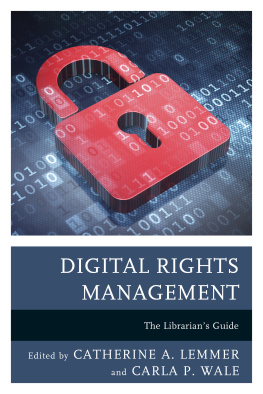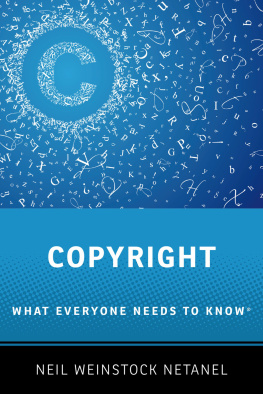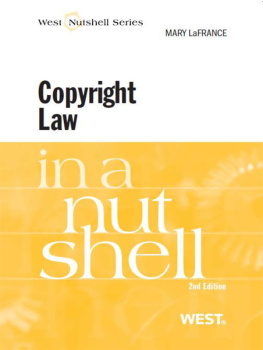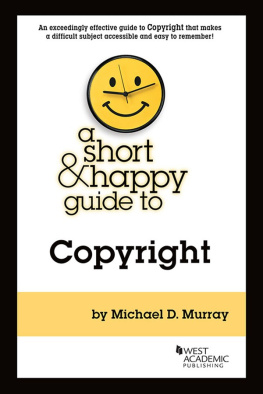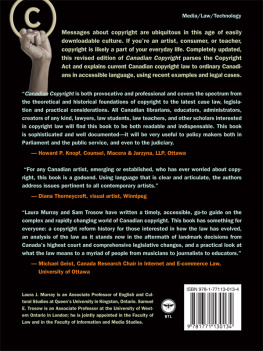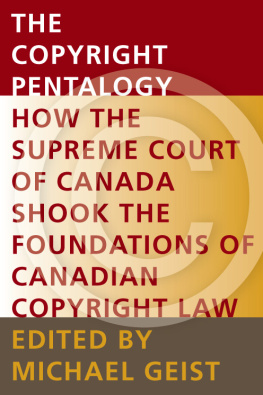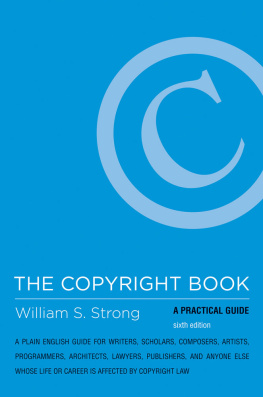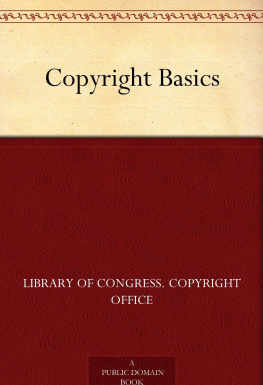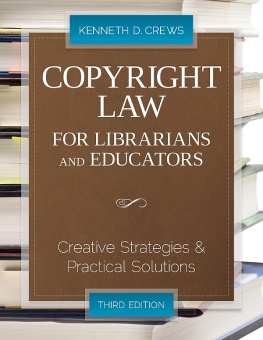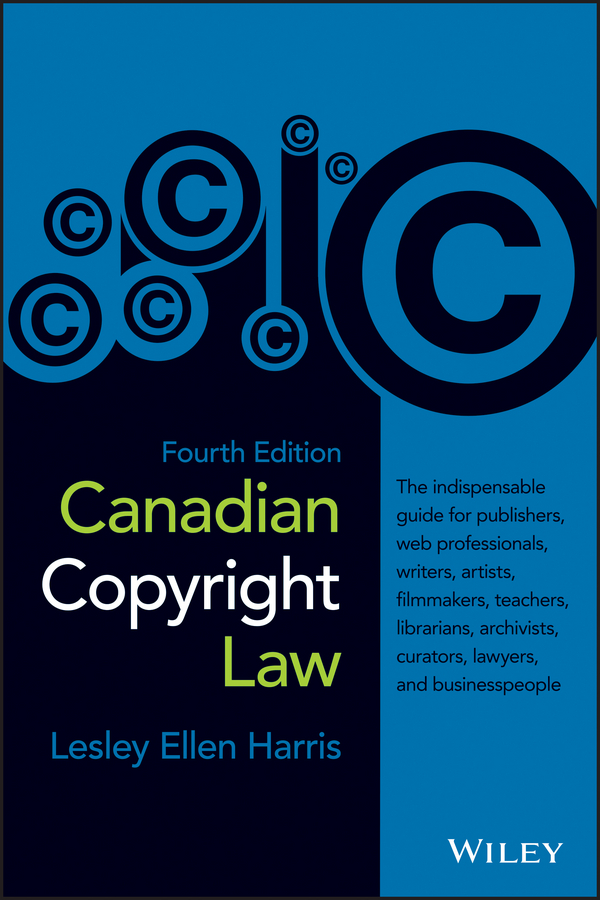Contents

Cover image: Inspired by RetroCircle; iStockphoto.com/Webtoaster777
Cover design: Wiley
Copyright 2014 by Lesley Ellen Harris. All rights reserved.
Published by John Wiley & Sons, Inc., Hoboken, New Jersey.
Published simultaneously in Canada.
No part of this publication may be reproduced, stored in a retrieval system, or transmitted in any form or by any means, electronic, mechanical, photocopying, recording, scanning, or otherwise, except as permitted under Section 107 or 108 of the 1976 United States Copyright Act, without either the prior written permission of the Publisher, or authorization through payment of the appropriate per-copy fee to the Copyright Clearance Center, 222 Rosewood Drive, Danvers, MA 01923, (978) 750-8400, fax (978) 646-8600, or on the web at www.copyright.com . Requests to the Publisher for permission should be addressed to the Permissions Department, John Wiley & Sons, Inc., 111 River Street, Hoboken, NJ 07030, (201) 748-6011, fax (201) 748-6008, or online at www.wiley.com/go/permissions .
Limit of Liability/Disclaimer of Warranty: While the publisher and author have used their best efforts in preparing this book, they make no representations or warranties with the respect to the accuracy or completeness of the contents of this book and specifically disclaim any implied warranties of merchantability or fitness for a particular purpose. No warranty may be created or extended by sales representatives or written sales materials. The advice and strategies contained herein may not be suitable for your situation. You should consult with a professional where appropriate. Neither the publisher nor the author shall be liable for damages arising herefrom.
For general information about our other products and services, please contact our Customer Care Department within the United States at (800) 762-2974, outside the United States at (317) 572-3993 or fax (317) 572-4002.
Wiley publishes in a variety of print and electronic formats and by print-on-demand. Some material included with standard print versions of this book may not be included in e-books or in print-on-demand. If this book refers to media such as a CD or DVD that is not included in the version you purchased, you may download this material at http://booksupport.wiley.com . For more information about Wiley products, visit www.wiley.com .
ISBN 978-1-118-07851-8 (cloth); ISBN 978-1-118-08356-7 (ebk);
ISBN 978-1-118-08355-0 (ebk)
To my children, Bennett and Ari, who are the newer generation of copyright creators and consumers.
A Note on the Text
I wrote this book for the lay reader. It is in no way a treatise on Canadian copyright law or a survey of case law, but a simplified description of a complex area of the law. The examples I have chosen in the text are merely examples. Each particular case must be examined on its own facts. My intention is to provide you with information that you can then apply to your own situations and facts at handnot to offer legal advice. If you face a legal issue, seek professional advice.
The book can be read from cover to cover or used, as required, for reference purposes. You might wish to first read the entire book before using it as a reference, since the nature of copyright is such that understanding one area of copyright law is often necessary to understanding other areas of the law.
I have quoted cases or specifically referred to them only to illustrate a point that reference to a particular case makes clearer. The consolidated Canadian Copyright Act is at http://laws-lois.justice.gc.ca/eng/acts/C-42 . You should take caution when reading the Copyright Act without being familiar with legal jargon and without access to the court cases that interpret the Act.
You might find certain sections of the book oversimplifiedothers overly complex. I have tried to find a balance between explaining the law simply, yet providing enough detail for you to understand its intricacies.
I have avoided technical terms or legal jargon as much as possible. Words such as work, creation, copyright-protected works, copyright materials or other subject-matter refer to something protected by copyright law. Creators create copyright-protected works, and the word creator is used interchangeably with the word author. Creator and user are two words often used when talking about items protected by copyright law. The creator is the person who creates the work. The user is the person who uses copyright materials; he or she is also called a consumer of copyright material.
Copyright is not an area of law that can be seen in black and white. Terms such as arguably, probably, likely, most likely , and it depends on the circumstances are necessary to address the many grey areas of copyright law. When you come across these words, take extra caution in applying the law to your particular circumstance.
The book is comprehensive in that it covers, or at least mentions, most provisions in the Canadian Copyright Act. However, I have omitted a small number of provisions because they apply in a miniscule number of cases and/or are too complex or specific for a general book on copyright law.
I have predominantly dealt only with copyright law, while ever-so-briefly touching upon other areas of intellectual property law. I may refer to, but I do not specifically deal with related legal issues such as personality rights, privacy, contract, libel and slander, passing off, tax, and bankruptcy. All of these areas may be of some interest to those who create, own, or use copyright materials, and most of these topics could be books themselves.
The law I describe in this text is the law as it stands at the time of writing: June 1, 2013. Legislative changes and court cases interpreting the law may change some of the law as described. Technological developments may also impact upon some of the information set out in this book. Current copyright information and information on how to manage copyright issues is at www.copyrightlaws.com .
Preface
It is hard to believe that 22 years have passed since the first edition of this book was published. At the time of approaching my publisher in 1990, I had written a few articles on copyright and given some talks on copyright to various groups, and was continually being asked by the public what more they could read on Canadian copyright law. Back in 1990, there was not much content on Canadian copyright law, especially for nonlawyers; hence I proposed a book on the topic. The first edition of this book received a warm welcome upon its publication as has every subsequent edition. I am delighted to be providing you with the fourth edition of this book.
When this book was initially published in 1991, I had not heard of the Internet. In 1995, when the second edition of this book was being written, I had my very first e-mail account on the Ottawas free-net, officially known as the National Capital Freenet. I had never surfed the web though I was familiar with the Internet as it then existed, consisting of Archie and Veronica and Gopher. And so by 2001 and the third edition of this book, I had claimed real estate on the Internet @ www.copyrightlaws.com , and I had a virtual office. Almost all my correspondence with clients and students went online. I no longer carried business cards but merely handed out my URL and told people to click on my website photo to access me via e-mail. I cancelled my telephone line and began using only a cellular phone.
At the time of this book (the fourth edition!), now available in print and, for the first time, also as an e-book, social media have exploded. We have yet again new ways of communicating with friends, family, and colleagues, and sharing copyright-protected content, with LinkedIn since 2002, Facebook since 2004, and Twitter since 2006. Every day we read about social media such as Pinterest (launched 2011) and how it may infringe copyright; new copyright infringement cases settled out of court or decided by a court; proposed and enacted copyright statute amendments in countries around the world; as well as proposed and new trade agreements and international treaties that deal with copyright issues.


